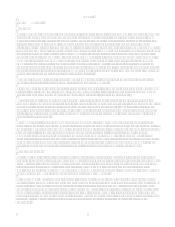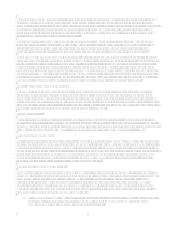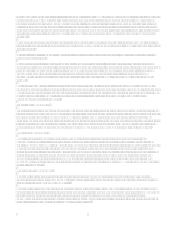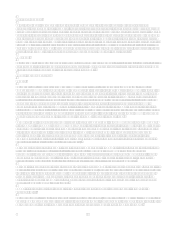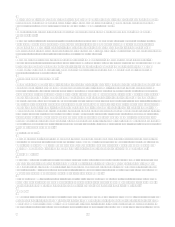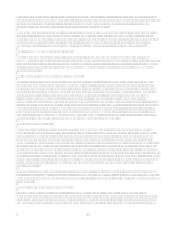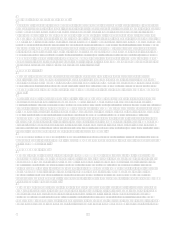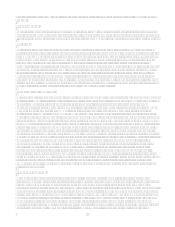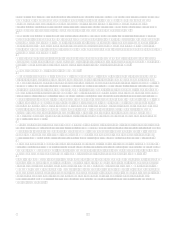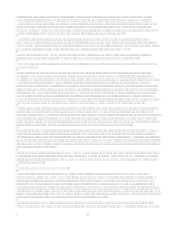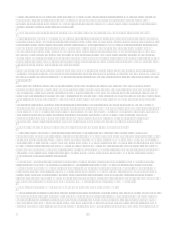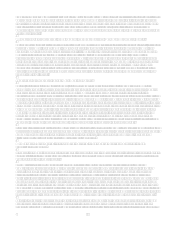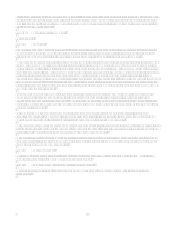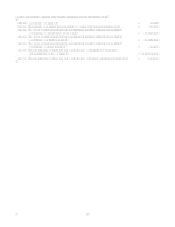Capital One 2006 Annual Report Download - page 33
Download and view the complete annual report
Please find page 33 of the 2006 Capital One annual report below. You can navigate through the pages in the report by either clicking on the pages listed below, or by using the keyword search tool below to find specific information within the annual report. 15
Investment in the Corporation and the Banks
Certain acquisitions of capital stock may be subject to regulatory approval or notice under federal or state law. Investors are
responsible for ensuring that they do not, directly or indirectly, acquire shares of capital stock of the Corporation in excess of
the amount which can be acquired without regulatory approval. Each of the Banks is an insured depository institution
within the meaning of the Change in Bank Control Act. Consequently, federal law and regulations prohibit any person or
company from acquiring control of the Corporation without, in most cases, prior written approval of the Federal Reserve, the
OCC or the OTS, as applicable. Control is conclusively presumed if, among other things, a person or company acquires more
than 25% of any class of voting stock of the Corporation. A rebuttable presumption of control arises if a person or company
acquires more than 10% of any class of voting stock and is subject to any of a number of specified control factors as set
forth in the applicable regulations. Additionally, the Bank is a bank within the meaning of Chapter 13 of Title 6.1 of the
Code of Virginia governing the acquisition of interests in Virginia financial institutions (the Financial Institution Holding
Company Act). The Financial Institution Holding Company Act prohibits any person or entity from acquiring, or making
any public offer to acquire, control of a Virginia financial institution or its holding company without making application to,
and receiving prior approval from, the Bureau of Financial Institutions.
Non-Bank Activities
The Corporations non-bank subsidiaries are subject to supervision and regulation by various other federal and state
authorities. Insurance agency subsidiaries are regulated by state insurance regulatory agencies in the states in which they
operate. Hibernia Asset Management, L.L.C., Hibernia Investments, L.L.C., Amivest Corporation and North Fork Financial
Advisors, L.L.C. are registered investment advisers regulated under the Investment Advisers Act of 1940. Hibernia Asset
Management provides investment advice to investment companies subject to regulation under the Investment Company Act
of 1940.
Hibernia Investments, Hibernia Southcoast Capital, Inc., and NFB Investment Services Corporation are registered broker-
dealers regulated by the Securities and Exchange Commission (the SEC) and the National Association of Securities
Dealers, Inc. In addition, Hibernia Investments and Hibernia Southcoast Capital, Inc. are regulated by the Louisiana Office of
Financial Institutions through the Deputy Commissioner of Securities. The Companys broker-dealer subsidiaries are subject
to, among other things, net capital rules designed to measure the general financial condition and liquidity of a broker-dealer.
Under these rules, broker-dealers are required to maintain the minimum net capital deemed necessary to meet their
continuing commitments to customers and others, and are required to keep a substantial portion of their assets in relatively
liquid form. These rules also limit the ability of broker-dealers to transfer large amounts of capital to parent companies and
other affiliates. Broker-dealers are also subject to other regulations covering their business operations, including sales and
trading practices, public offerings, publication of research reports, use and safekeeping of client funds and securities, capital
structure, record-keeping and the conduct of directors, officers and employees.
NFB Agency Corp. (NFB Agency) is a New York State licensed insurance agency that is regulated by the state insurance
regulatory agencies in the states in which it operates. NFB Agency provides both personal and business insurance services to
retail and commercial clients.
USA PATRIOT Act of 2001
On October 26, 2001, the President signed into law the USA PATRIOT Act of 2001 (the Patriot Act). The Patriot Act
contains sweeping anti-money laundering and financial transparency laws as well as enhanced information collection tools
and enforcement mechanics for the U.S. government, including: due diligence requirements for financial institutions that
administer, maintain, or manage private bank accounts or correspondent accounts for non-U.S. persons; standards for
verifying customer identification at account opening; rules to promote cooperation among financial institutions, regulators,
and law enforcement entities in identifying parties that may be involved in terrorism or money laundering; reports by
nonfinancial trades and businesses filed with the Treasury Departments Financial Crimes Enforcement Network for
transactions exceeding $10,000; and filing suspicious activities reports by brokers and dealers if they believe a customer may
be violating U.S. laws and regulations.
The Department of Treasury in consultation with the Federal Reserve and other federal financial institution regulators has
promulgated rules and regulations implementing the Patriot Act which: prohibit U.S. correspondent accounts with foreign
banks that have no physical presence in any jurisdiction; require financial institutions to maintain certain records for
correspondent accounts of foreign banks; require financial institutions to produce certain records relating to anti-money
laundering compliance upon request of the appropriate federal banking agency; require due diligence with respect to private
banking and correspondent banking accounts; facilitate information sharing between government and financial institutions;


